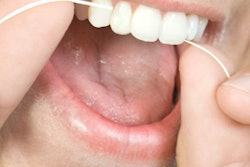
Dental care expenditures were more than $10.5 million over a seven-year period for children in Ohio with behavioral health diagnoses compared to their peers without behavioral health diagnoses, according to a study published on August 29 in Academic Pediatrics.
Children with behavioral health diagnoses often have different patterns of dental care utilization, including prolonging preventive care, which can increase the cost of treatment. The study's authors are asking that in the aftermath of the COVID-19 pandemic, patterns of care for these children be explored so that interventions can be promoted that improve cost-saving outcomes.
"As children face increasing mental health challenges, especially in the aftermath of the coronavirus pandemic, the impact of behavioral health diagnoses on dentistry warrants further exploration," wrote the study authors, led by Dr. Jin Peng, PhD, of Nationwide Children's Hospital in Columbus, OH.
The study compared dental utilization and expenditures between children with and without behavioral health diagnoses at Partners for Kids, an accountable care organization serving children in Central and Southeast Ohio. Nearly 78,000 children with seven years of continuous Medicaid enrollment from 2013 to 2019 were included in the study.
Researchers calculated five dental utilization outcomes: diagnostic visits, preventive visits, treatment visits, treatment visits under general anesthesia, and orthodontic visits. The total expenditures were calculated for each outcome over seven years.
Of the participants, nearly one-quarter of Medicaid-insured children had one or more behavioral health diagnoses. A diagnosis was associated with reduced utilization of preventive care and increased use of general anesthesia for dental treatment.
Behavioral health status changed the likelihood of preventive visits and dental general anesthesia visits based on medical comorbidity. For example, children with behavioral health diagnoses had lower odds of a preventive visit and higher odds of dental treatment under general anesthesia, which is more expensive.
No differences were observed between children with and without behavioral health diagnoses for diagnostic, treatment, and orthodontic visits. The total cumulative dental expenditures were $10.5 million greater for children with behavioral health diagnoses compared to children without such diagnoses during the study period.
The study authors urge that efforts be increased by accountable care organizations to directly test and evaluate care coordination, chronic disease management, and quality improvement programs that are focused on improving oral health outcomes in these children.
"Early identification and intervention could alter treatment approaches, improve care, reduce risk of harm, and achieve cost-savings within a pediatric accountable care organization," Peng and colleagues concluded. "In doing so, it addresses some of the observed challenges for achieving oral health equity."



















